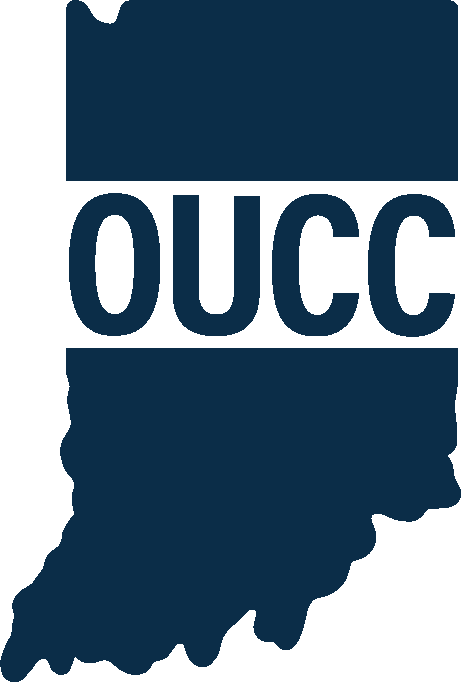
- Rates and charges of most municipal utilities in Indiana are set at the local government level.
- Under state law, municipal sewer utilities are exempt from Indiana Utility Regulatory Commission (IURC) jurisdiction.*
- Indiana law allows municipal water, electric and natural gas utilities to withdraw from IURC jurisdiction, and most have.
- If a municipal utility is outside IURC jurisdiction, the locally elected city or town council is the utility’s regulatory body.
While the rates and charges of most investor-owned utilities (such as NIPSCO, Vectren, etc.) in Indiana are approved at the state level, those decisions for most municipal utilities are made at the local government level.
487 water, electric and natural gas utilities are owned and operated by city and town governments in Indiana. 449 of these utilities (92 percent) have withdrawn from Indiana Utility Regulatory Commission (IURC) jurisdiction over their rates, charges and finances as allowed by state law.
Indiana Municipal Utilities | |||
Electric | Natural Gas | Water | |
Under IURC Jurisdiction | 8 | 1 | 26 |
Withdrawn | 68 | 18 | 366 |
TOTAL | 76 | 19 | 392 |
To withdraw from IURC jurisdiction, municipal utilities must follow specific processes provided by state law.
A municipal utility seeking to withdraw from IURC jurisdiction may do so either by a vote of the city or town council, or by a public vote in a city or town election.
When a city or town council considers an ordinance that would remove the utility from IURC jurisdiction in most cases, it must mail a written notice of the meeting to all of the utility’s ratepayers and to the IURC at least 30 days before the meeting.
In addition, a second class city (defined by law as a city with between 35,000 and 599,999 residents) must hold at least 2 public meetings before the council’s final vote on the ordinance. The meetings must be held at different locations and must include an explanation of the withdrawal process.
An ordinance withdrawing a municipal utility from IURC jurisdiction takes effect 60 days after the council approves it, unless the council receives a petition within that 60-day period. Consumers who consider drafting and circulating such a petition are strongly urged to review the Indiana Code sections that apply (IC 8-1.5-3-9 and IC 8-1.5-3-9.1).
- The petition must be signed by at least 2 percent of the number of people in the municipality who voted in the last election for Secretary of State (IC 3-8-6-3).
- It should specifically request that the municipal legislative body (city or town council) “submit the question of removal from commission jurisdiction to the registered voters of the municipality at the next general election.”
- At a minimum, a petition should include each person’s full name in legible printed form, signature, and full address (including city/town and zip code).
- If the petition is submitted in proper form, the utility is to remain under IURC jurisdiction until the election.
State law allows the IURC to review out-of-town surcharges for municipal water and sewer utilities in certain circumstances.
FREQUENTLY ASKED QUESTIONS
Q: When a utility is withdrawn from IURC jurisdiction, does that mean its rates are no longer regulated?
A: No. However it does mean that all rate regulation occurs at the local level. For a municipal utility outside IURC jurisdiction, the regulatory body is the city or town council.
Q: Does the OUCC advocate for or against proposed withdrawals?
A: No. The OUCC recognizes that these are local decisions to be made by local governments and/or voters.
Q: If I’m dissatisfied with a municipal utility’s rates, have discussed my concerns with locally elected officials, and the utility is not under IURC jurisdiction, what can I do?
A: In most cases, a circuit or superior court at the county level is the proper venue. The general common law standard is that rates must be “nondiscriminatory, reasonable and just.” Consumers who wish to challenge utility rates in court are urged to first consult with private legal counsel.
Q: Can a utility be returned to IURC jurisdiction after it is withdrawn?
A: Yes. The same statutes that create the process for “opting out” also include processes for “opting in.” See Indiana Code 8-1.5-3-9.5 and 8-1.5-3-9.6.
Q: If a municipal water utility withdraws from IURC jurisdiction, does that change the environmental standards with which it must comply?
A: No. Water and sewer utilities must comply with regulations of the Environmental Protection Agency (EPA), the Indiana Department of Environmental Management (IDEM) and other agencies regardless whether their rates are under IURC jurisdiction.
For more information, including the advantages and disadvantages of utility withdrawal, please visit here.
This fact sheet is intended to provide a general summary and not legal advice. Specific legal authority concerning state utility withdrawal proceedings can be found in the Indiana Code (IC 8-1-1 et. seq.)
You may also be interested in:
(7/2020)
